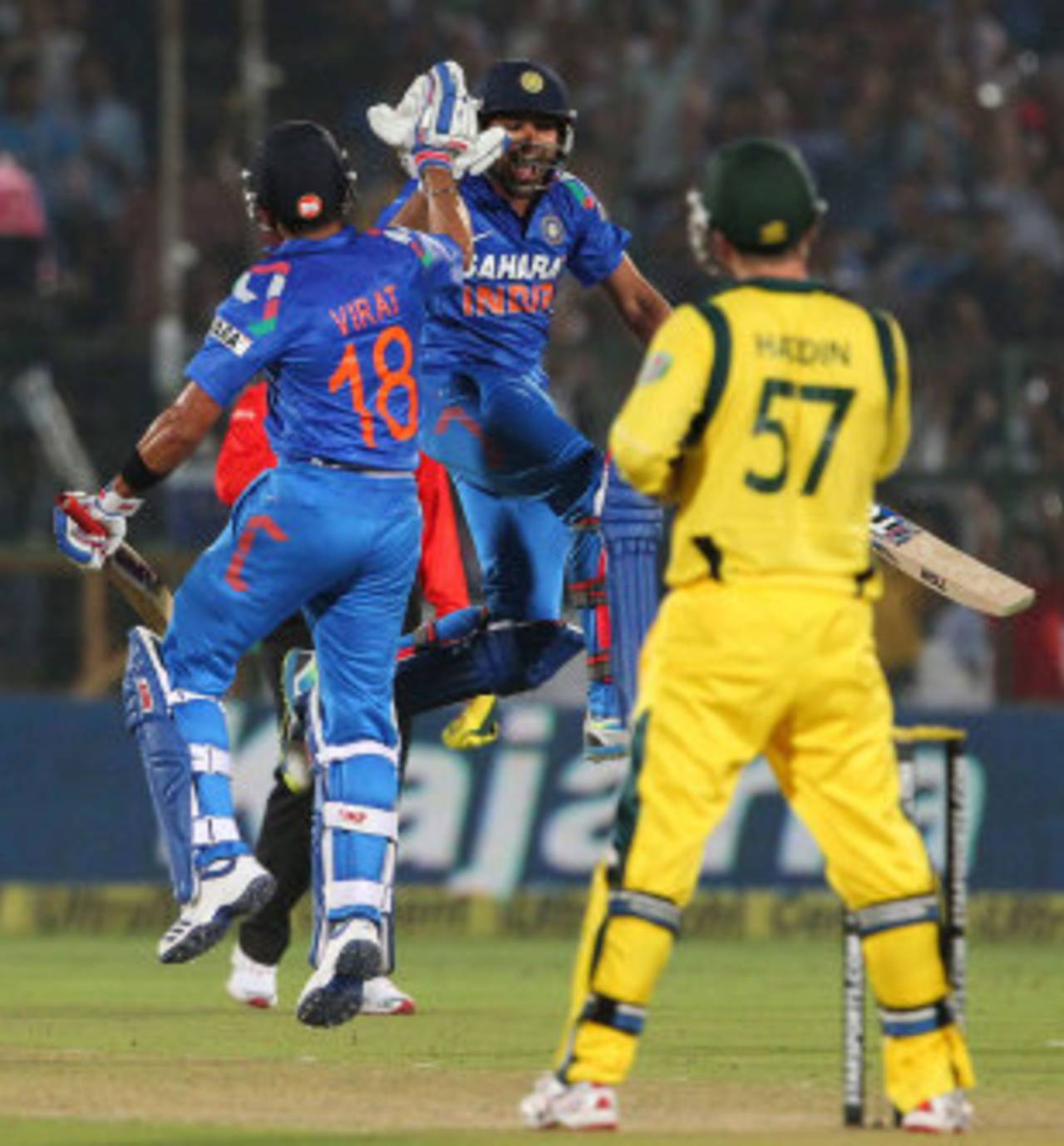John Lennon's song "Give Peace a Chance" became the rally cry for anti-war protesters. Soon the refrain at cricket grounds could be: "Give bowlers a chance."
In the short forms of the game there's a chance bowlers will become an endangered species if the trend of heavier and better bats and shorter boundaries continues. This tendency has led to a surge in boundaries in general and sixes in particular. While this may sound like a favourable result in a game competing for the entertainment dollar, the long-term consequences may not be so desirable.
In the
second ODI between India and Australia, 64% of the runs scored off the bat were accumulated in boundaries. Singles accounted for around 28% of the scoring - the majority of which would have been at the easier end of the scale, with the infielders back on the 30-yard circle - and about 43% of the deliveries were dot balls.
This means a reduced reliance on fielding and running between wickets - two of the more exciting skills in the game.
As the boundaries have been shortened and the bats have improved, the preference for power over artistry in batting has increased. Throw in abundant protective equipment, the prevalence of flat pitches, and the restrictions on bowlers and their field placings, and suddenly being a leather flinger is becoming about as attractive as eating a cold curry.
Even the new ball at each end isn't the advantage it first appears to be, as it reduces the chances of the old ball swinging, and the increased hardness means the batsmen can hit them further. Add a bit of outfield dew in the evening and that curry's looking really unpalatable.
However, administrators still aren't satisfied with their efforts to punish bowlers. The improvement in bats means the ball, once hit, travels faster. Hence there's a greater likelihood bowlers will be sconed by a straight drive. Additionally, the unfortunate fielders placed in a catching position 15 metres from the bat are more prone to hand injuries.
You can't blame the bowlers for thinking they are being served up as cannon fodder for the pampered batsmen.
More and more we're hearing commentators say: "The batsman is not frightened to take on the outfielders." That's because the odds favour them. But if sixes become even more prevalent, there's a danger the spectacle will become monotonous.
If batting skill is reduced to power-hitting, the bowlers will be less inclined to rely on guile for their wickets. There's no incentive for the faster bowlers to seek a length where the ball might swing, if sixes are constantly being crashed down the ground. Spinners too will be less inclined to employ flight to deceive batsmen.
We're already seeing the slower-ball bouncer and the wide yorker being regularly used to contain the hitting. Eventually bowlers will rely heavily on batsmen getting themselves out rather than on ambushing them.
The short-form games are designed for exciting close finishes. If huge first-innings totals become the norm, close finishes will become less prevalent, as the chasing team implodes, seeking an impossibly high run rate. Instead of fans who enjoy a contest, the game will attract spectators who would have revelled in the Lions-versus-Christians debacles.
Bowlers need to be offered a crumb in the shorter forms of the game otherwise they'll revolt, as they have done in the past, using extreme methods like Bodyline and chucking.
The problem is, bats can be further improved but little can be done to the ball to improve the bowler's lot. There must be consideration given to curbing the influence of the bat and placing more emphasis on the skill of the user. Making the boundaries fairer would be a good start.
Another move would be to redress the imbalance in the rewards system. Batsmen are being conditioned to believe rapid-fire boundaries bring bigger paydays than a well-constructed longer innings. Consequently they seek increased hitting power. If these trends continue, sooner or later the bowlers are going to declare war.
Former Australia captain Ian Chappell is now a cricket commentator for Channel 9, and a columnist
